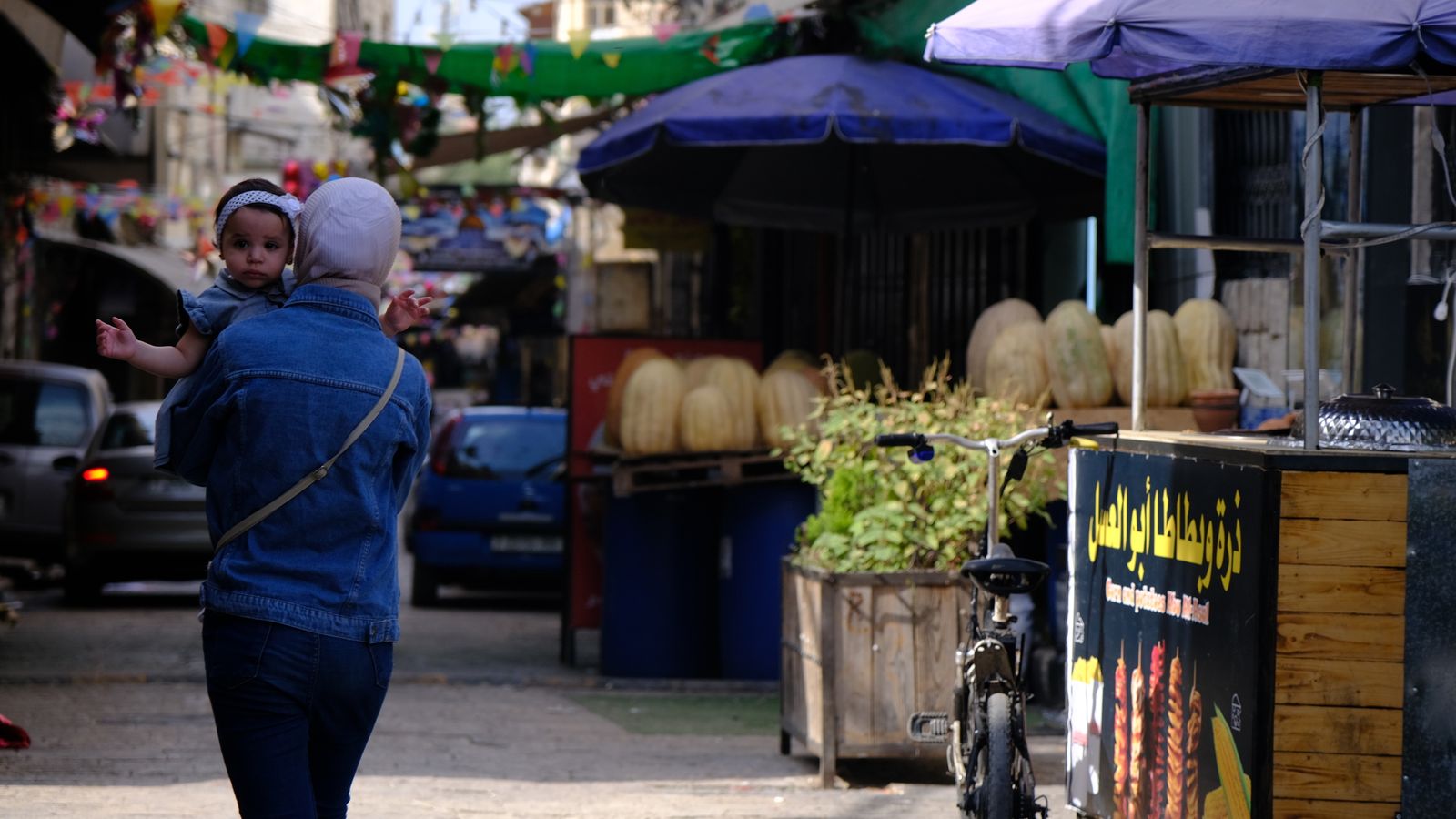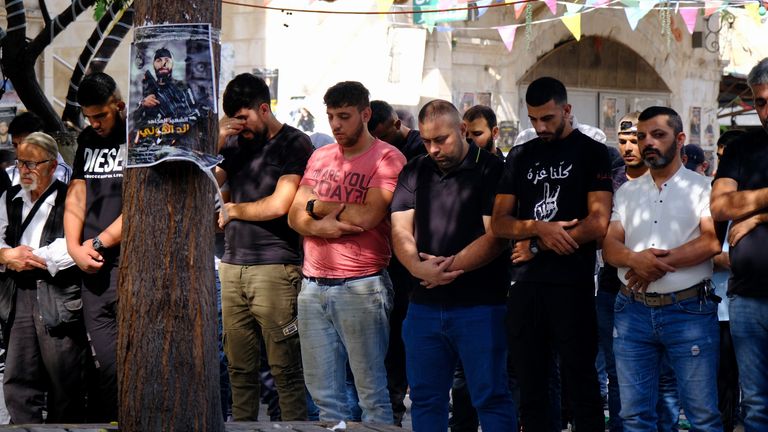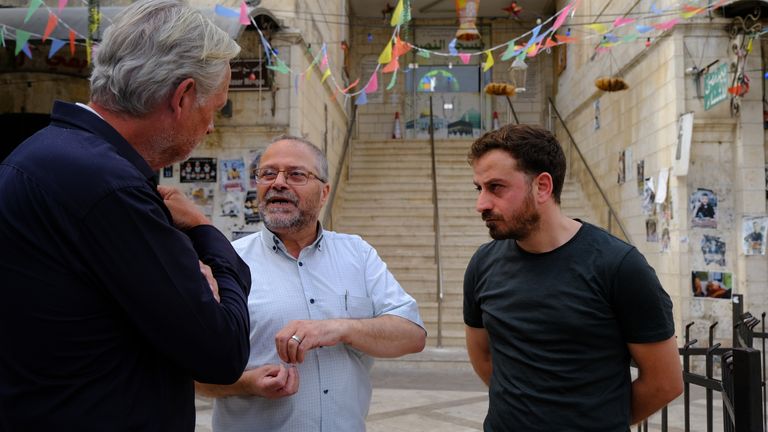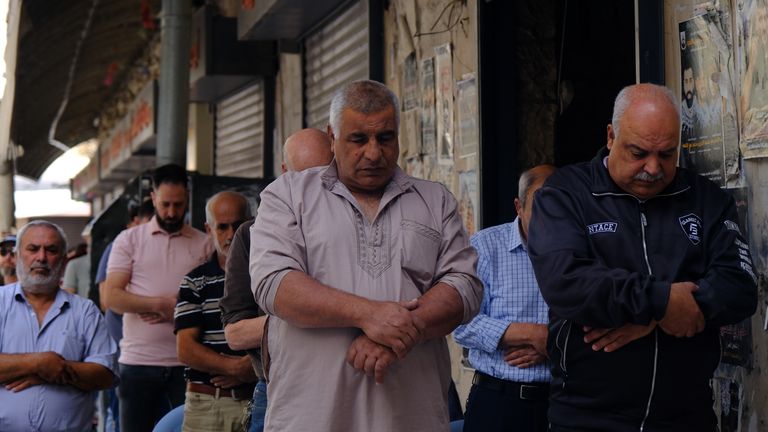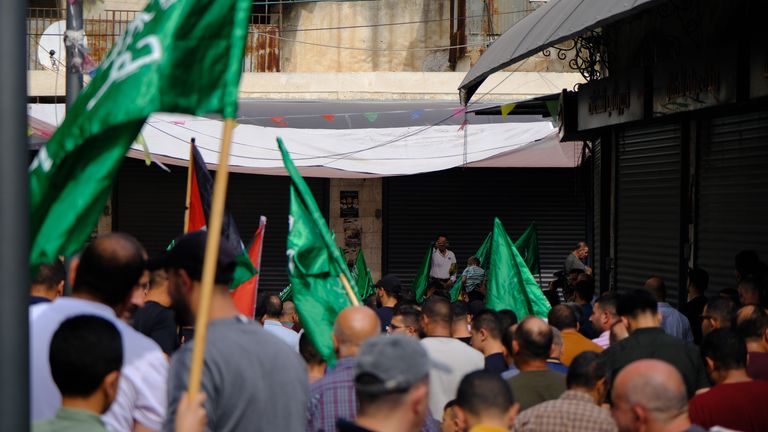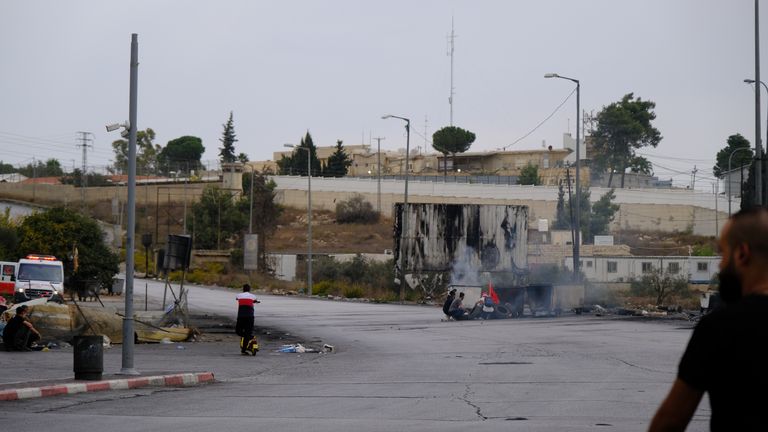A soldier with his machine gun cradled in his arms signals us to stop as we approach a checkpoint on the road to the West Bank city of Nablus.
More soldiers are spread out on the rocky hillocks around us.
A textbook example of a checkpoint in enemy territory, and that’s how they see the West Bank Palestinians who live here – the enemy.
All but one of the roads that leads to Nablus are closed by barriers, guarded by heavily-armed members of the Israeli defence forces.
Our press credentials are photographed and we are waved through. We pass through the town of Huwara; it’s a military zone, the main road is deserted.
The shops are shut, there’s nobody on the streets but soldiers crouching on the side of the road in front of doorways.
The Palestinians living here have been told to stay inside, and to not use the road. They have built simple barricades to keep the army out, although they probably wouldn’t stop them.
Follow live: Israel to expand ground operations in Gaza
We followed as two armoured vehicles drove through the town, past the mosque, then turned at a roundabout and went back through the town again.
It was eerie and I felt a sense of menace as we passed through yet another checkpoint.
We made our way along the only open route – finally we reached Nablus.
We walked through the ancient streets of the Old City towards the mosque, where many had gathered for Friday prayers.
The mosque was full, and the worshippers had spilled out onto the streets outside.
The talk amongst everyone here are the events of the past three weeks – the Hamas attack on 7 October, the subsequent bombing of Gaza, and what is going to happen next.
Pictures of people killed in recent weeks and months on the West Bank have been posted on walls of buildings around the mosque.
We heard the same thing over and over – the international community is failing the Palestinian people and is in effect condoning the collective punishment of Palestinians by Israel after the Hamas attack.
We met Samer Aqrouq and his son Zaid after prayers.
Samer is a lifelong resident of the Old City of Nablus. He told me this cycle of violence has gone on his whole life.
“The idea of killing from the other side, the occupation, is something normal for them, they don’t know human rights, they don’t know civil rights, they don’t know international law, they don’t know anything, and they don’t apply anything, they know only how to kill,” he said.
“I am 65, by the way. I have been witnessing this daily since I am 12. I’m from the old city, we have been witnessing this since long, long and we are paying a very high price.”
Samer’s son Zaid is a lawyer. He is incredulous at the lack of care from the international community and tells me Palestinians feel completely ignored.
“What is happening in Gaza is a clear violation of all humanitarian law You are bombing hospitals, you are bombing schools, you are bombing safe houses…”
Zaid says he can barely look at his infant son these days, because when he sees him all he can think about is the children killed every day in Gaza.
“I have a six-month boy. I am ashamed to look at him in my home, yeah, I speak truly, when I look to my child in the home I cry, because when I see the world, the audience, they don’t do anything, not only Arab people, not only Islamic people, all the world.”
The crowds who gathered after prayers to protest were not huge, but the support for Hamas was clear on the steps of the mosque where worshippers were carrying the group’s green and white flag along with the Palestinian one.
There is a real anger here on the West Bank, and Fridays are generally the day people come out to gather, to protest, and to inevitably clash with the Israel Defence Forces (IDF).
In Ramallah, much like last Friday, youths once again built barricades, burnt tyres, and threw stones at Israeli soldiers 100 metres or so away.
This is standard now and it always includes someone amongst their number shot by the defence force snipers.
We watched as yet another boy was shot and whisked away to hospital as this depressing cycle of violence continues.
Day after day.
This story originally appeared on Skynews

